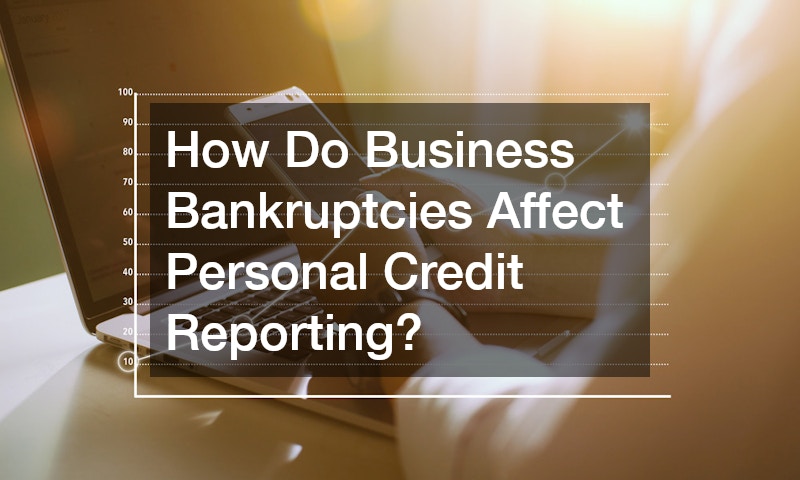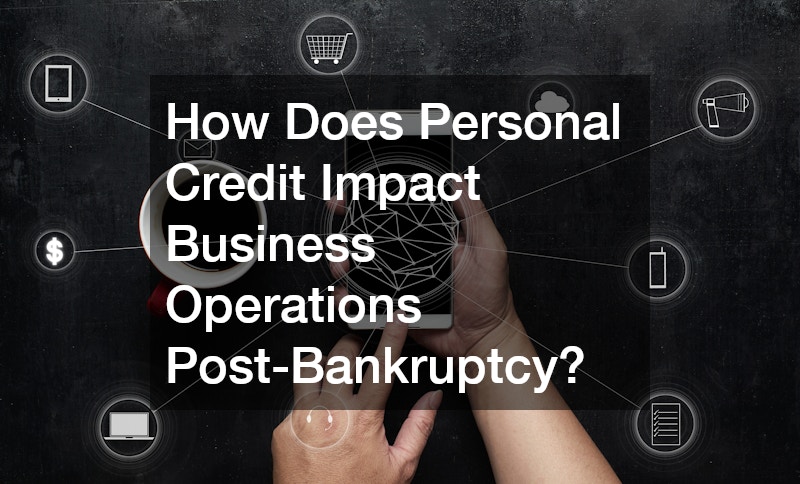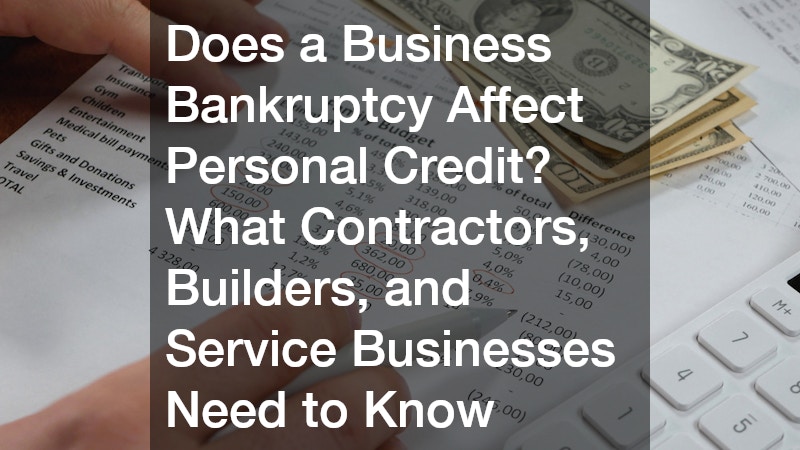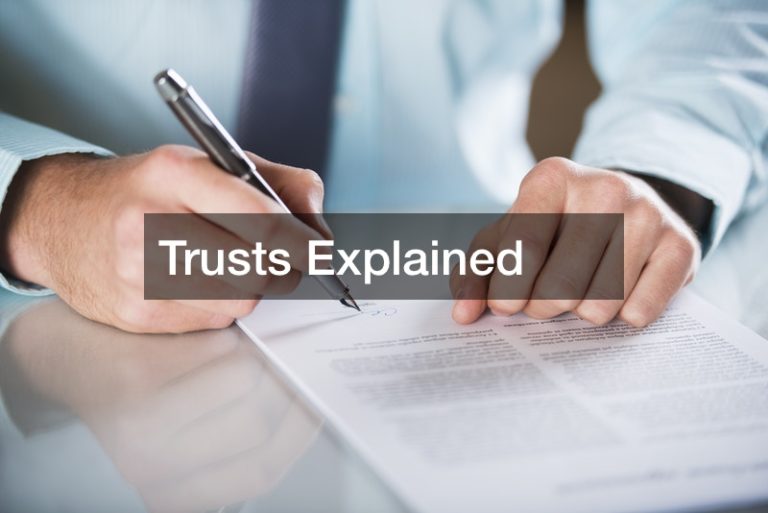Does a Business Bankruptcy Affect Personal Credit? What Contractors, Builders, and Service Businesses Need to Know

In the world of small businesses and specialized trades, financial challenges are nothing new. Whether it’s a roofing company dealing with seasonal slowdowns, a tree removal company facing unexpected equipment costs, or a local concrete pumping business delayed by weather, the pressures can be intense. When debts pile up and cash flow dries up, many owners worry about one big question: Does a business bankruptcy affect personal credit?
This concern is especially pressing when personal assets and business obligations have become intertwined over the years of running a trade-based company.
For contractors, builders, and service-based enterprises—whether you run a portable bathroom business, an excavating business, a propane business, or even a tax prep business—the answer can be complex. It depends on the type of bankruptcy, your business structure, and the presence of personal guarantees on loans or vendor accounts. This article breaks down the key factors you need to understand and offers actionable advice to protect and rebuild your financial footing.
By looking closely at how these factors work together, business owners can make more informed decisions before financial trouble becomes unmanageable.
What is the Difference Between Business and Personal Credit?
Understanding Business Credit
Business credit is the financial reputation of your company. Lenders, suppliers, and leasing companies look at it to decide whether to extend payment terms or financing. Your business might establish credit under its own tax ID number, separate from your personal Social Security number, if it’s structured as an LLC, corporation, or similar entity.
Having strong business credit can open doors to larger contracts and better vendor relationships, reducing the need to rely on personal credit.
Defining Personal Credit
Personal credit reflects your own borrowing history—mortgages, car loans, credit cards, and personal lines of credit. Credit bureaus track your payment patterns, outstanding balances, and overall reliability.
When personal credit is strong, it can sometimes be used as a safety net during tough business cycles, but it also puts you personally at risk.
Key Differences and Interactions
Even though business and personal credit are technically separate, they often overlap—especially for small business owners. A custom sign business or contractor supply business might rely on personal credit cards in early stages, or an owner might co-sign for equipment loans. This crossover is where financial risks to personal credit emerge.
Maintaining a clear boundary between personal and business accounts is the first line of defense against unwanted credit entanglement.
How Does Business Bankruptcy Influence Personal Finances?
Immediate Financial Implications
If your business files for bankruptcy, your personal credit may not automatically take a hit—but it can if you’ve personally guaranteed loans, leases, or credit accounts. A roofing company owner who signed personally for a $100,000 equipment loan will still be on the hook even if the company closes its doors.
Creditors may move quickly to collect from you personally, especially when valuable collateral is involved.
Long-term Financial Outlook
The impact can linger. If personal liability exists, you may see higher personal interest rates, stricter lending requirements, and lower credit limits. In trades like excavating or concrete pumping, where heavy machinery is expensive, personal guarantees are common, so the owner’s personal credit can suffer alongside the business.
Even after a bankruptcy is discharged, lenders may remain cautious, viewing you as a higher-risk borrower for several years.
Strategies to Mitigate Impact
Owners of propane businesses or portable bathroom businesses can minimize risk by separating personal and business accounts, building business credit early, and avoiding mixing personal funds with company expenses. Consulting with a financial advisor before considering bankruptcy is crucial.
Proactive planning may allow you to restructure or refinance debt rather than face bankruptcy at all.
Can Personal Guarantees Affect Personal Credit Scores?
What are Personal Guarantees?
A personal guarantee is your promise to repay a business loan if your company can’t. Lenders and equipment suppliers often require them, particularly when working with smaller companies without an established business credit profile.
They are common in industries with costly equipment purchases, making it difficult for owners to avoid them entirely.
Impact on Personal Credit Score
If the business defaults, the lender can pursue you personally. Missed payments show up on your credit report, damaging your personal score. This can happen whether you’re running a tree removal company or tax prep businesses.
A single default can undo years of diligent personal credit building.
Managing Personal Guarantees
Before signing, negotiate to limit or remove personal guarantees if possible. If unavoidable, make sure you understand the full amount you could be liable for and keep backup funds or insurance in place.
Reviewing each contract carefully ensures you’re not unknowingly guaranteeing more debt than you can handle.
Does Business Structure Play a Role in Credit Impact?
LLC vs Sole Proprietorship
Sole proprietorships have no legal separation between business and owner, meaning debts are automatically personal debts. LLCs offer some protection, but lenders may still require personal guarantees for high-risk ventures like an excavating business or roofing company.
This makes choosing the right structure an important first step in protecting personal assets.
Corporations and Personal Exposure
Corporations provide more robust liability protection, but again, banks and contractors supplying materials often ask for personal backing when the company is young or small.
Over time, establishing a strong corporate credit profile can reduce the need for personal involvement.
Choosing the Right Structure
Selecting the best structure for your business can reduce exposure. For example, a custom sign business or contractor supply business might benefit from incorporating early to separate personal and business obligations.
A well-planned structure also sends a signal of professionalism to vendors and clients.
Are There Protective Measures for Personal Credit in a Business Bankruptcy?
Legal Protections Available
Certain legal structures and bankruptcy chapters limit personal liability, especially if no personal guarantees exist. Speaking with a bankruptcy attorney familiar with small businesses is vital.
Knowing your options in advance can prevent rash decisions in a financial crisis.
Practical Steps to Safeguard Credit
Separate accounts, maintain meticulous records, and use business credit cards rather than personal cards for operational costs. A roofing company that purchases materials using a dedicated business line of credit will be better protected than one using the owner’s personal Visa.
Keeping clean records also makes it easier to demonstrate which debts belong solely to the business.
Understanding Bankruptcy Laws
Chapter 7, Chapter 11, or Chapter 13 filings have different implications. Chapter 7 liquidates assets, Chapter 11 reorganizes debts, and Chapter 13 focuses on structured repayment. Knowing which applies to your situation can help protect your personal finances.
The right chapter choice can mean the difference between preserving your credit or facing long-term damage.
How Do Business Bankruptcies Affect Personal Credit Reporting?
Credit Reporting Basics
Business bankruptcies typically appear on business credit reports, not personal ones—unless personal guarantees or personally held accounts are involved.
Understanding how credit bureaus categorize debts helps prevent surprises.
Business vs Personal Credit Reporting
A local concrete pumping business may have its bankruptcy noted on its Dun & Bradstreet profile, while the owner’s personal Experian report stays clean—unless personal liability exists.
Regularly reviewing both reports ensures you know exactly what lenders will see.
Errors and Disputes in Reports
Mistakes do happen. If a bankruptcy incorrectly appears on your personal credit, dispute it with the credit bureaus immediately and provide supporting documentation.
Prompt action can prevent wrongful black marks from dragging down your score.
What Role Does Financial Planning Play in Preventing Credit Damage?
Importance of Financial Planning
Strong financial planning can help businesses avoid bankruptcy altogether. Tree removal companies or propane businesses that forecast seasonal revenue dips and set aside cash reserves are less likely to face sudden insolvency.
Careful planning builds resilience against market downturns and unexpected expenses.
Effective Budgeting Techniques
Separate fixed and variable expenses, regularly review cash flow, and anticipate equipment maintenance costs. Power washing equipment or heavy machinery breakdowns can derail a budget without proper planning.
Consistently tracking expenses can reveal problems before they become crises.
Long-term Financial Strategies
Diversifying revenue streams, maintaining strong vendor relationships, and keeping lines of credit available for emergencies can prevent crises from spiraling into bankruptcy.
A long-term view also makes your business more appealing to lenders and investors.
How Can Business Owners Rebuild Personal Credit Post-Bankruptcy?
Steps to Rebuild Credit
If your personal credit does take a hit, pay all remaining obligations on time, reduce outstanding debt, and avoid taking on unnecessary new loans. A portable bathroom business owner emerging from bankruptcy might start small with secured credit cards.
Consistency is key—steady positive activity gradually outweighs past issues.
Role of Secured Credit Cards
These tools help reestablish positive payment history. Consistently paying balances in full improves credit over time.
Lenders view this as a sign that you can responsibly handle new obligations.
Monitoring Credit Reports
Regularly check for errors and confirm that discharged business debts are not improperly reported under your personal name.
Early detection of reporting mistakes speeds up the recovery process.
How Does Personal Credit Impact Business Operations Post-Bankruptcy?
Accessing New Lines of Credit
Even if your business credit is separate, lenders often review your personal credit to determine your overall reliability. This is common in industries with high startup costs, such as roofing companies, excavating businesses, or contractor supply businesses.
Good personal credit can make the difference in securing crucial financing to relaunch your operations.
Business Credibility and Personal Credit
Vendors and partners may be hesitant to extend favorable terms if they see financial instability. A tax prep business owner with damaged personal credit may face higher bonding costs or insurance premiums.
Strong personal credit reassures partners that you can honor commitments.
Rebuilding Business Finances
Gradually reestablish credibility by keeping current with suppliers, paying contractors promptly, and building up a positive trade credit history.
Demonstrating financial responsibility helps shift attention away from past difficulties.
What Resources are Available for Financial Guidance and Support?
Finding Financial Advisors
Seek out professionals with experience helping small business owners. Advisors familiar with industries like propane businesses or custom sign businesses can provide tailored strategies.
An experienced guide can help you avoid costly missteps and spot opportunities.
Utilizing Credit Counseling Services
Nonprofits offer advice on budgeting, debt repayment, and credit restoration at little or no cost.
These services are particularly useful if you’re overwhelmed and unsure where to start.
Government and Nonprofit Assistance
SBA programs, local chambers of commerce, and trade associations often provide education and financial planning tools for small contractors and builders.
Tapping into these resources can provide both funding options and valuable networking opportunities.
Conclusion
For contractors, builders, and service business owners—whether you run a tree removal company, a roofing company, an excavating business, or a local concrete pumping business—the question of whether a business bankruptcy affects personal credit has no one-size-fits-all answer. The impact depends on several interconnected factors, including whether you’ve signed personal guarantees, the type of legal structure your business operates under, and how well you’ve maintained a clear boundary between business and personal finances. Recognizing these factors early helps you take control before problems escalate, allowing you to avoid unpleasant surprises when financial challenges arise.
The good news is that with proper planning, strong financial discipline, and sound legal guidance, you can shield your personal credit from the fallout of a business bankruptcy. Establishing separate accounts, building a solid business credit profile, and being cautious about signing personal guarantees all create layers of protection. And even if your personal credit does suffer a setback, recovery is entirely achievable. With consistent effort—paying bills on time, reducing outstanding debts, and using tools like secured credit cards—you can restore your financial reputation faster than you might expect. Persistence and discipline are the keys to turning financial setbacks into future strength, transforming a difficult period into a foundation for long-term stability.
Ultimately, understanding the interplay between business and personal credit—and taking deliberate steps to safeguard both—can mean the difference between a temporary challenge and a lasting crisis. By acting strategically today, you’re not just protecting your credit score; you’re ensuring your company’s ability to grow, maintaining access to critical financing, and preserving your own peace of mind. A proactive approach now secures both your business’s stability and your personal financial future, allowing you to focus on building—not just surviving—tomorrow.










